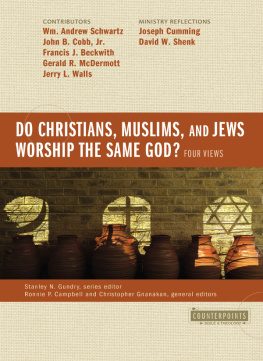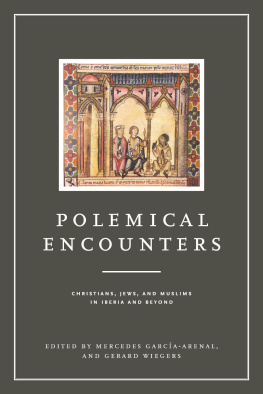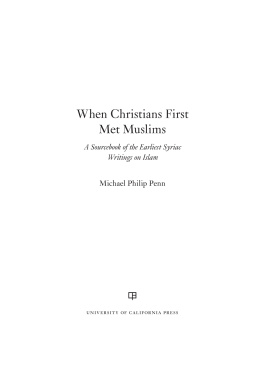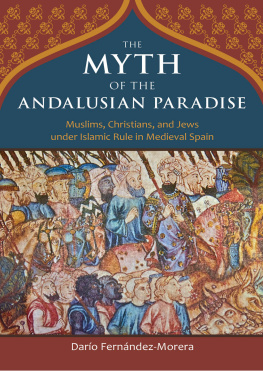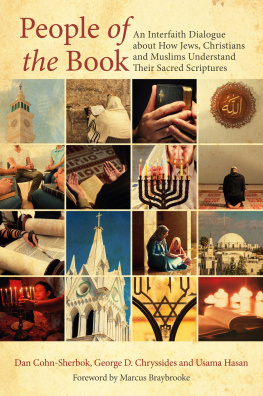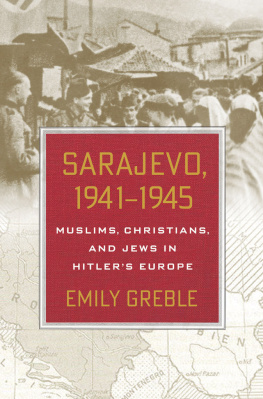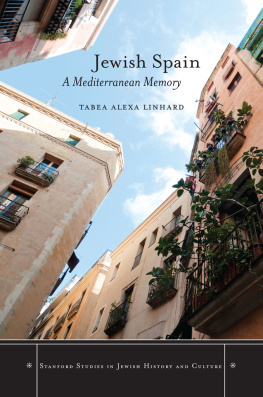Alisa Meyuhas Ginio - Jews, Christians, and Muslims in the Mediterranean World After 1492
Here you can read online Alisa Meyuhas Ginio - Jews, Christians, and Muslims in the Mediterranean World After 1492 full text of the book (entire story) in english for free. Download pdf and epub, get meaning, cover and reviews about this ebook. year: 1992, publisher: Taylor & Francis, genre: Romance novel. Description of the work, (preface) as well as reviews are available. Best literature library LitArk.com created for fans of good reading and offers a wide selection of genres:
Romance novel
Science fiction
Adventure
Detective
Science
History
Home and family
Prose
Art
Politics
Computer
Non-fiction
Religion
Business
Children
Humor
Choose a favorite category and find really read worthwhile books. Enjoy immersion in the world of imagination, feel the emotions of the characters or learn something new for yourself, make an fascinating discovery.

- Book:Jews, Christians, and Muslims in the Mediterranean World After 1492
- Author:
- Publisher:Taylor & Francis
- Genre:
- Year:1992
- Rating:4 / 5
- Favourites:Add to favourites
- Your mark:
- 80
- 1
- 2
- 3
- 4
- 5
Jews, Christians, and Muslims in the Mediterranean World After 1492: summary, description and annotation
We offer to read an annotation, description, summary or preface (depends on what the author of the book "Jews, Christians, and Muslims in the Mediterranean World After 1492" wrote himself). If you haven't found the necessary information about the book — write in the comments, we will try to find it.
Jews, Christians, and Muslims in the Mediterranean World After 1492 — read online for free the complete book (whole text) full work
Below is the text of the book, divided by pages. System saving the place of the last page read, allows you to conveniently read the book "Jews, Christians, and Muslims in the Mediterranean World After 1492" online for free, without having to search again every time where you left off. Put a bookmark, and you can go to the page where you finished reading at any time.
Font size:
Interval:
Bookmark:
MEDITERRANEAN WORLD AFTER 1492
IN THE MEDITERRANEAN WORLD
AFTER 1492
Alisa Meyuhas Ginio

FRANK CASS PUBLISHERS
Published 2013 by Routledge
2 Park Square, Milton Park, Abingdon, Oxon 0X14 4RN
711 Third Avenue, New York, NY 10017, USA
Mediterranean World After 1492.
(Mediterranean Historical Review Series,
ISSN 0951-8967)
I. Ginio, Alisa Meyuhas II. Series
909.08
ISBN 978-0-714-68050-7 (pbk)
edited by Alisa Meyuhas Ginio.
p. cm.
3. SephardimItalyHistory. 4. JewsItalyHistory 5. Muslims
SpainHistory. 6. Castile KingdomEthnic relations. 7. Italy
Ethnic relations. 8. SpainEthnic relations. I. Meyuhas, Ginio,
Alisa, 1937
DS134.J48 1992
| 909.04924dc20 | 92-13102 CIP |
| Mara Fuencisla Garca Casar |
| Carlos Carrete Parrondo |
| Sara Turel |
| Miguel-Angel Ladero Quesada |
| Elguja Khintibidze |
| Felipe Mallo Salgado |
| Michal Oron |
| Renata Segre |
| Benjamin Ravid |
| Elisabeth Crouzet-Pavan |
| Ennio Concina |
| Ivana Burdelez |
| Edwin Seroussi |
| Leah Bornstein-Makovetsky |
| Benjamin Braude |
| Joel L. Kraemer |
Font size:
Interval:
Bookmark:
Similar books «Jews, Christians, and Muslims in the Mediterranean World After 1492»
Look at similar books to Jews, Christians, and Muslims in the Mediterranean World After 1492. We have selected literature similar in name and meaning in the hope of providing readers with more options to find new, interesting, not yet read works.
Discussion, reviews of the book Jews, Christians, and Muslims in the Mediterranean World After 1492 and just readers' own opinions. Leave your comments, write what you think about the work, its meaning or the main characters. Specify what exactly you liked and what you didn't like, and why you think so.

